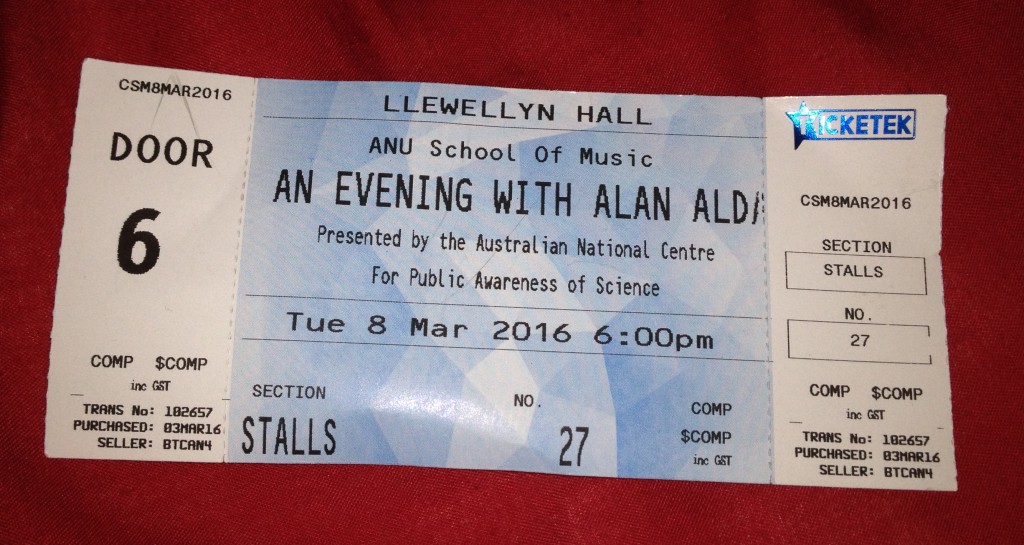I woke from a dream this morning – no, it’s ok, I’m not going to tell you about it in detail – and am now wondering about the kind of story that I see myself living in.
I have a lot of obstacle/barrier dreams, the frustrating kind of dreams where you are trying to do something simple but you never seem to be able to get it done because things are always not going to plan. (My dentist tells me that I grind my teeth in my sleep – I’m guessing that this is why). I’m now starting to wonder if this shapes my outlook on the world in my waking hours – if the story that I see myself living in is an ongoing struggle against the things getting in the way of what I’m hoping to achieve. (At an unconscious level at least).
As someone with a keen interest in storytelling, it occurs to me that this is a fairly common model for narratives – at least in the Western tradition that I’m most familiar with. We have a hero (clearly me, because if you can’t be the hero in your own story, then when?) who needs to do something, overcomes opposition/barriers to do so and is generally triumphant. This is almost invariably the model in video games, where you also develop skills and/or acquire resources that help you to overcome increasingly challenging obstacles (or enemies) until the final “boss fight”. Or take a romantic comedy – the hero (or heroine) has a goal but obstacles get in the way (more often hilarious misunderstandings or their own character flaws) that need to be addressed before they achieve their objective.
We all instinctively understand this model and this is why it’s the in-between material in the story (what do we know about the character, what unusual scenario did they confront, what other incidental things happened) that we use to judge whether it’s a good or a bad story – which is to say whether or not it is well told. When things don’t go to plan and the hero doesn’t achieve their goal, well, we have mental models for this as well so it’s not necessarily a surprise but because it’s still an outlier in many ways, the story seems to carry extra emotional weight.
I think maybe the way that I’m currently looking at my PhD topic sits firmly in this (former) narrative structure. The hero (either teachers or intrepid TEL edvisors) want to enhance teaching and learning using technology (because there are bucket-loads of evidence that this can help) yet there are barriers (cultural, competence-based, resource related and ???) that prevent this from happening. The quest is to overcome these barriers so that teaching and learning is enhanced and everyone lives happily ever after.
What if, however, this whole storytelling model is wrong?
What if it is grounded too much in this idea of competing and opposing forces where only one can triumph? I’ll happily acknowledge that most of these issues are far more nuanced than this makes out and the conflict of needs/priorities is generally not oppositional or malicious but I have to wonder whether our (or my) storytelling model is sophisticated enough to deal with this. How often have I taken circumstance as a personal slight and missed an opportunity to work with instead of against it. I read somewhere recently that brain scans indicate that when people read something online that goes against their beliefs, the brains first immediate response is to go straight to the defensive part of fight-or-flight and our capacity for cognition and understanding drops instantly. So it’s not just me struggling with our conflict based paradigm perhaps at least.
Something else I’m mindful of here is the impact of the Western emphasis on individualism vs collectivism. I like people but, as an introvert, I’m also pretty happy with my own company and I’m mindful that maybe in my story, as the hero, I expect myself to do most of the work. I understand rationally that this is simply just not how things will or can happen and that it takes a village etc etc but this is the model of many of the stories that we tell. The hero might get some help from friends but they largely resolve the quest on their own.
So if our (my) current story isn’t the best one, then what is? Is there are better way of looking at this question of how we can better support TEL practices than simply overcoming obstacles and getting from A to B? I have to give credit to my supervisor here, who, when I was putting together my initial PhD proposal suggested that I change the focus from barriers to more positive strategies. I think perhaps what I missed was that it doesn’t just need to be positive strategies for overcoming the barriers – because this is still a barrier-centric position.
I don’t have the answers but I like that I can at least see more clearly that there are different paths.

